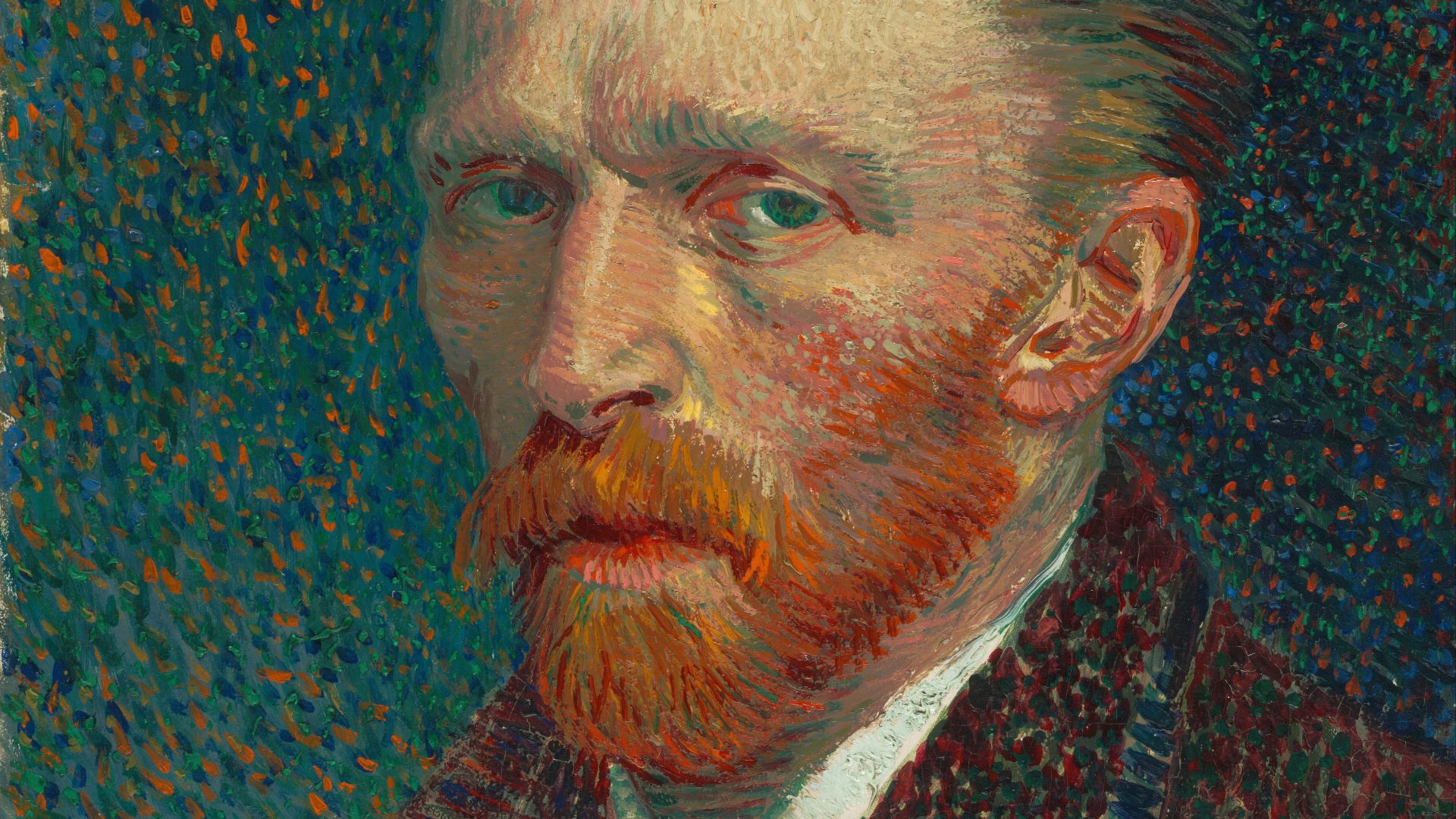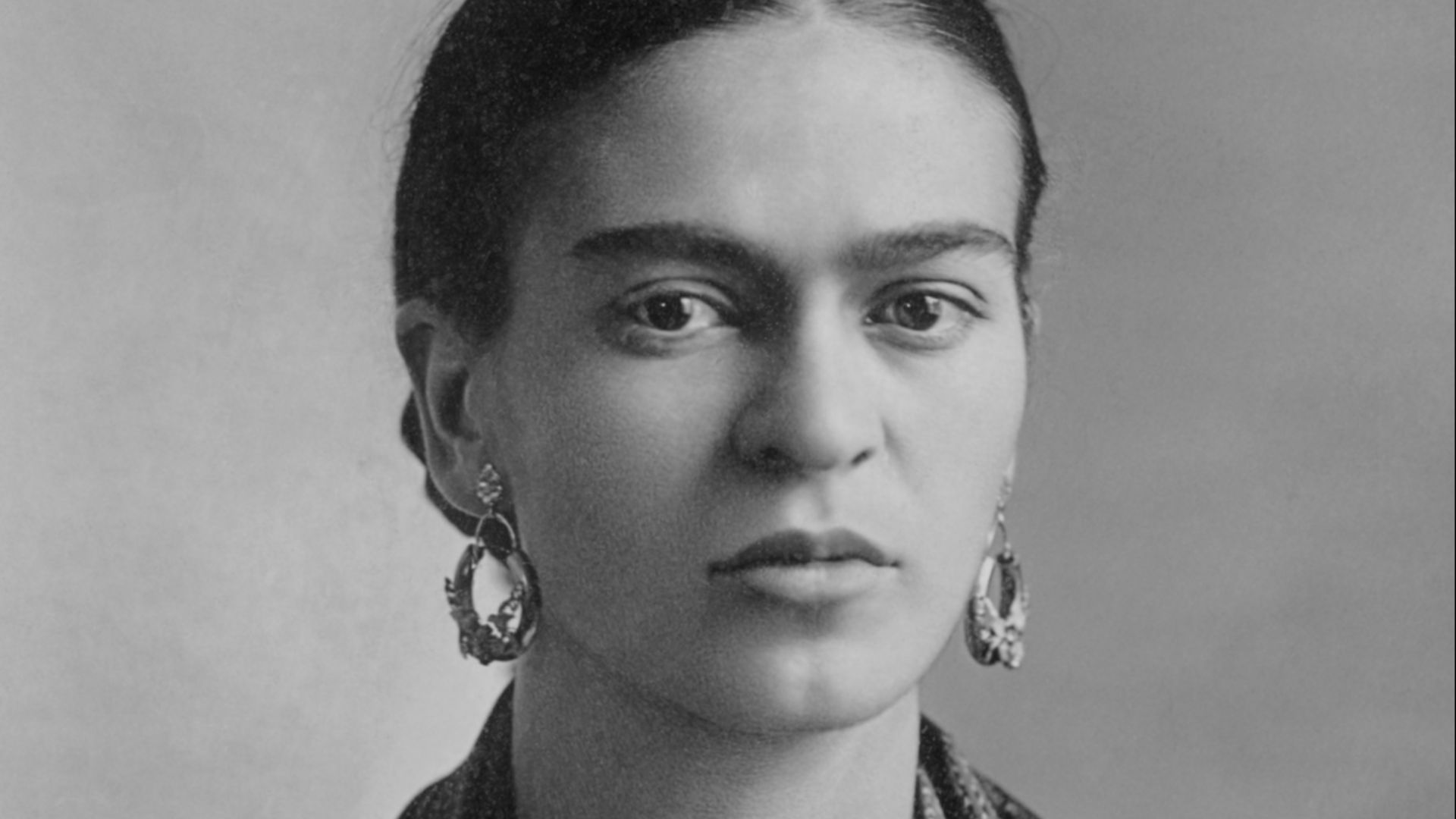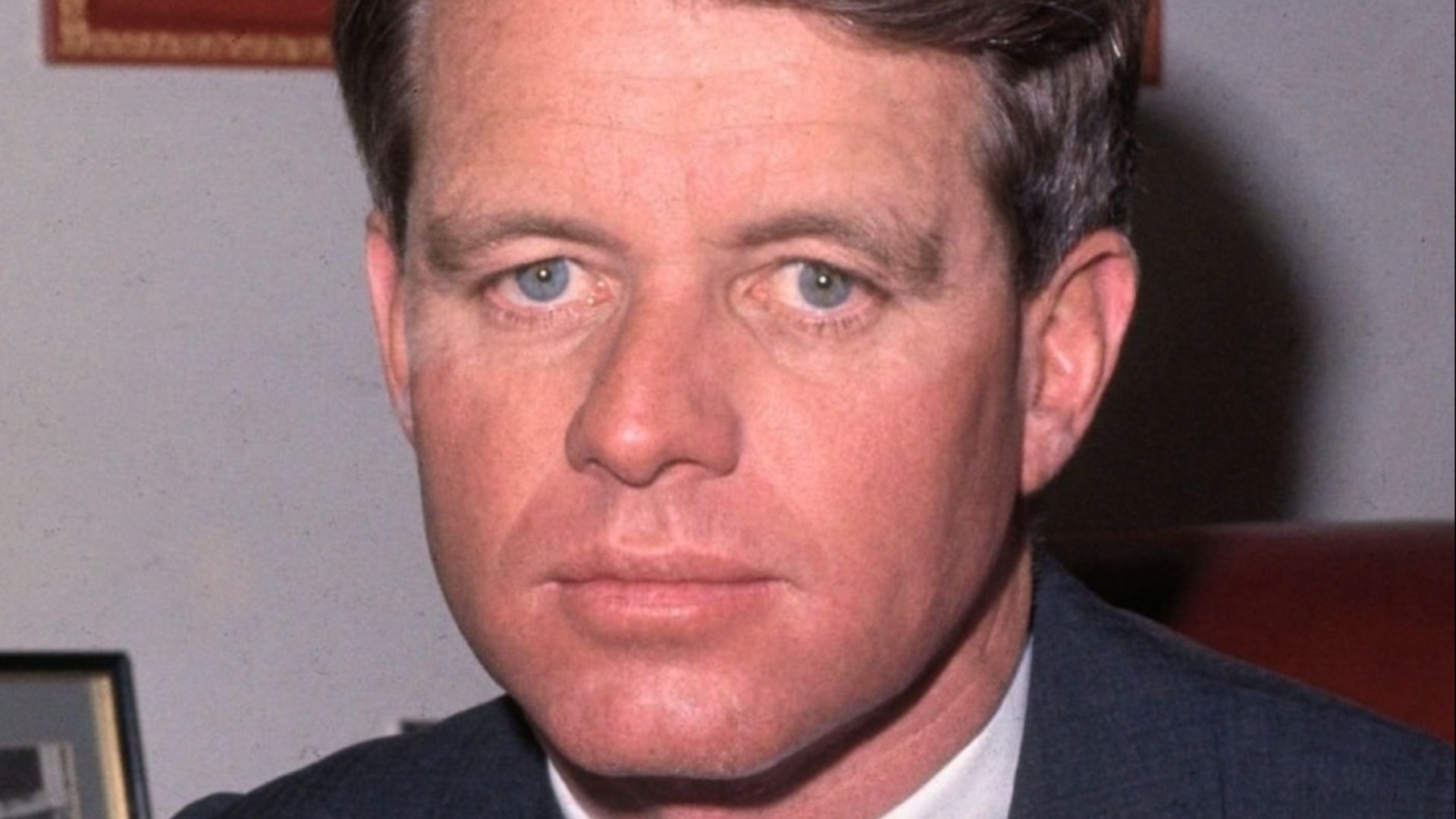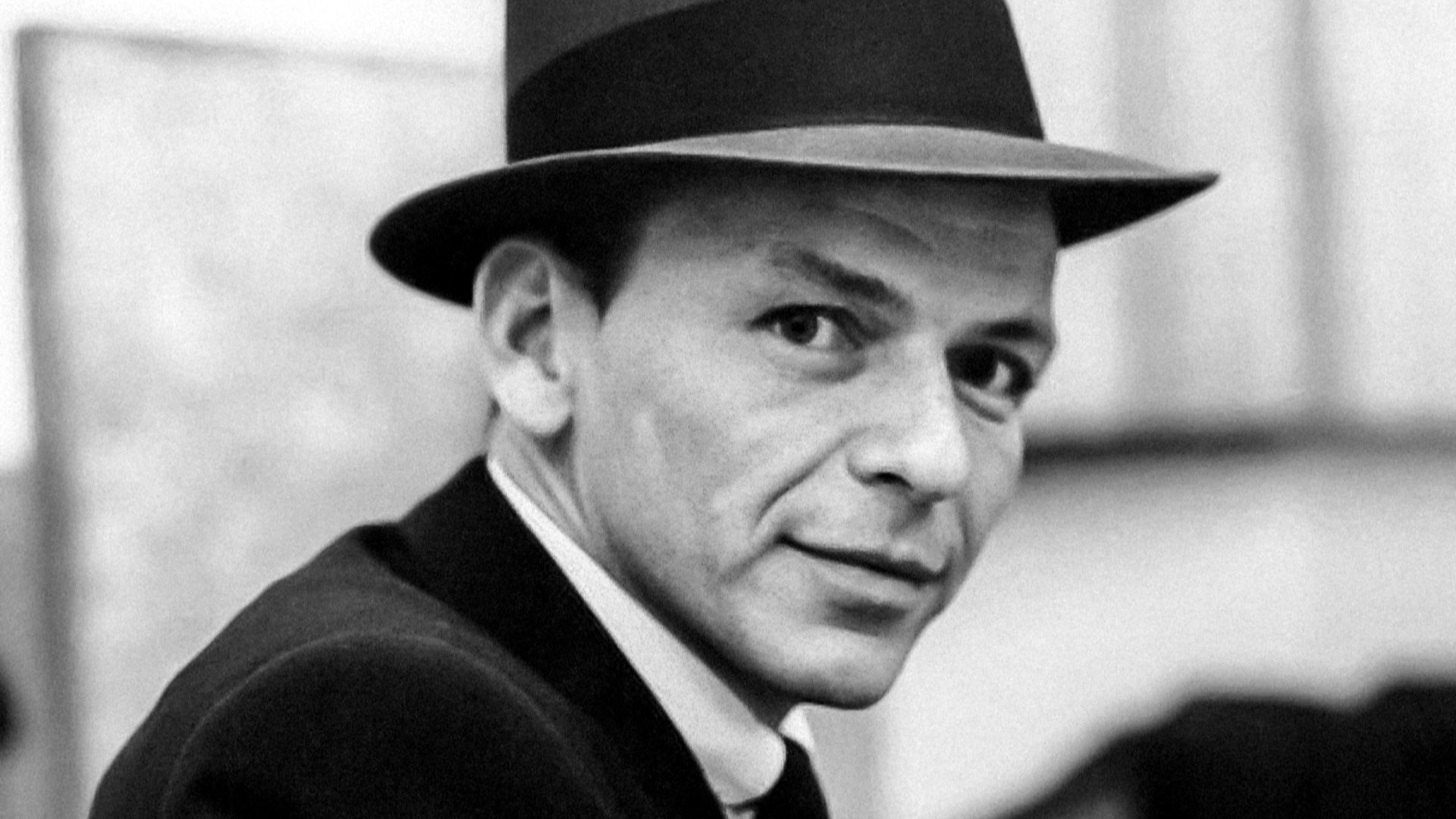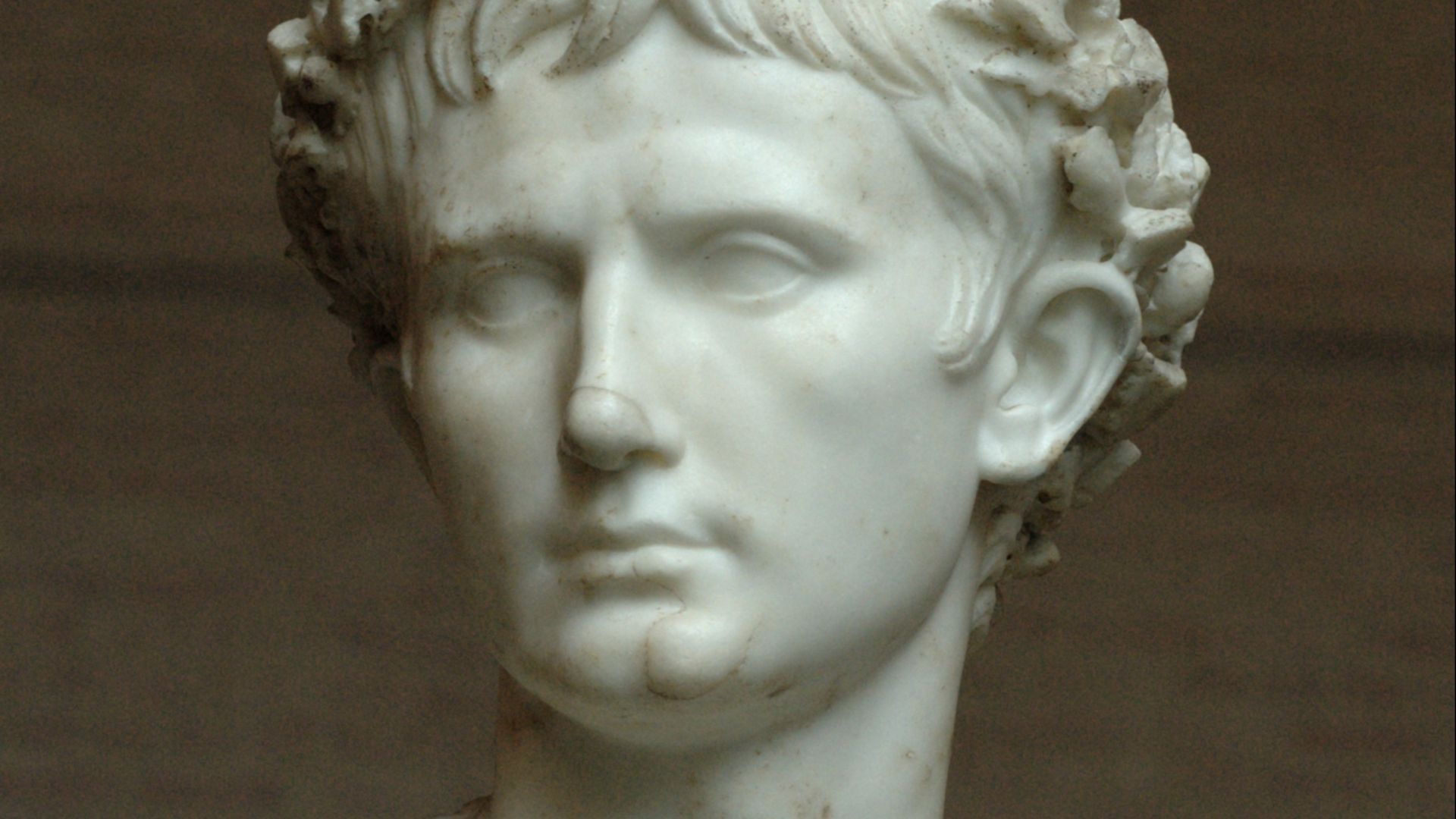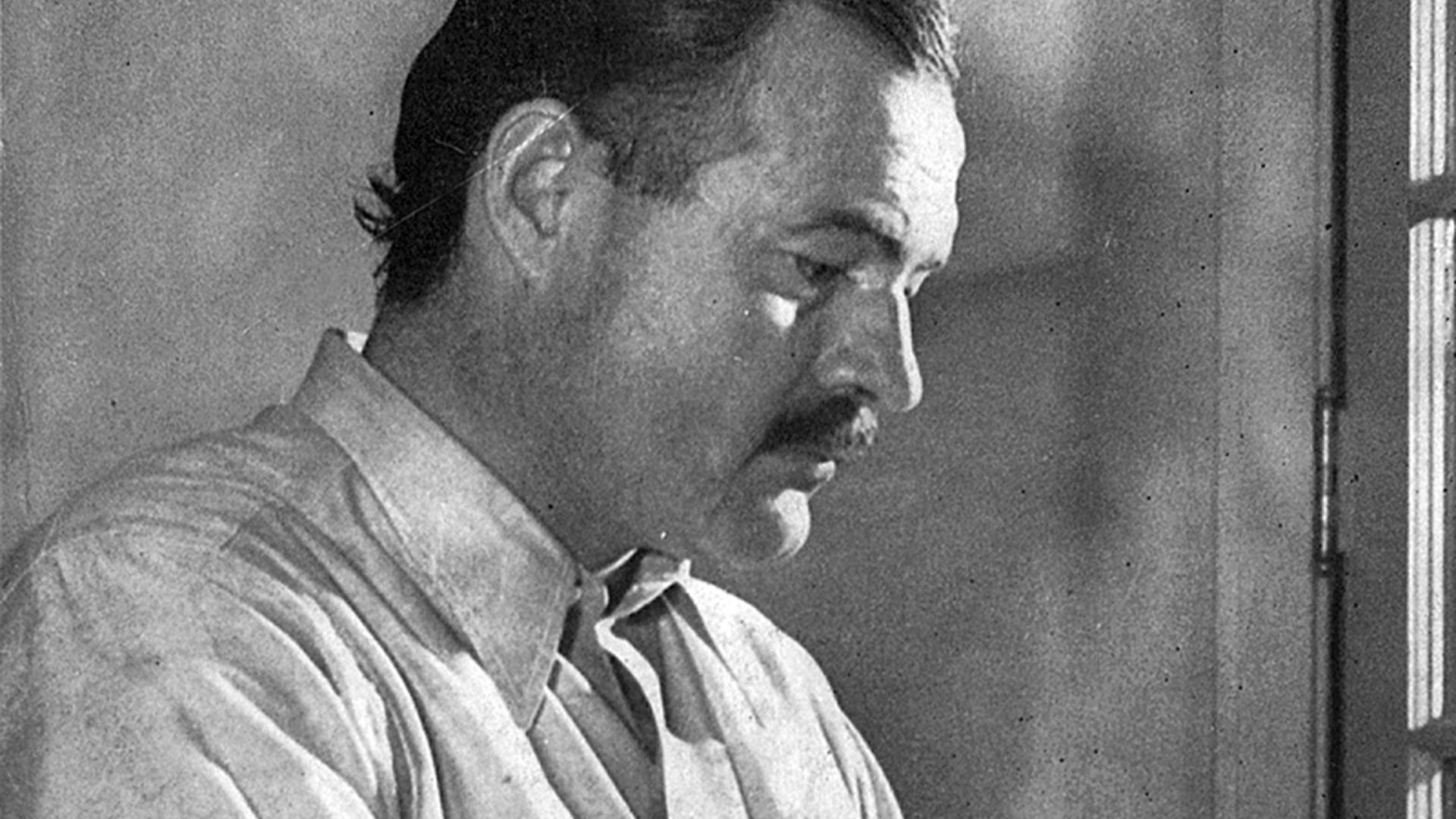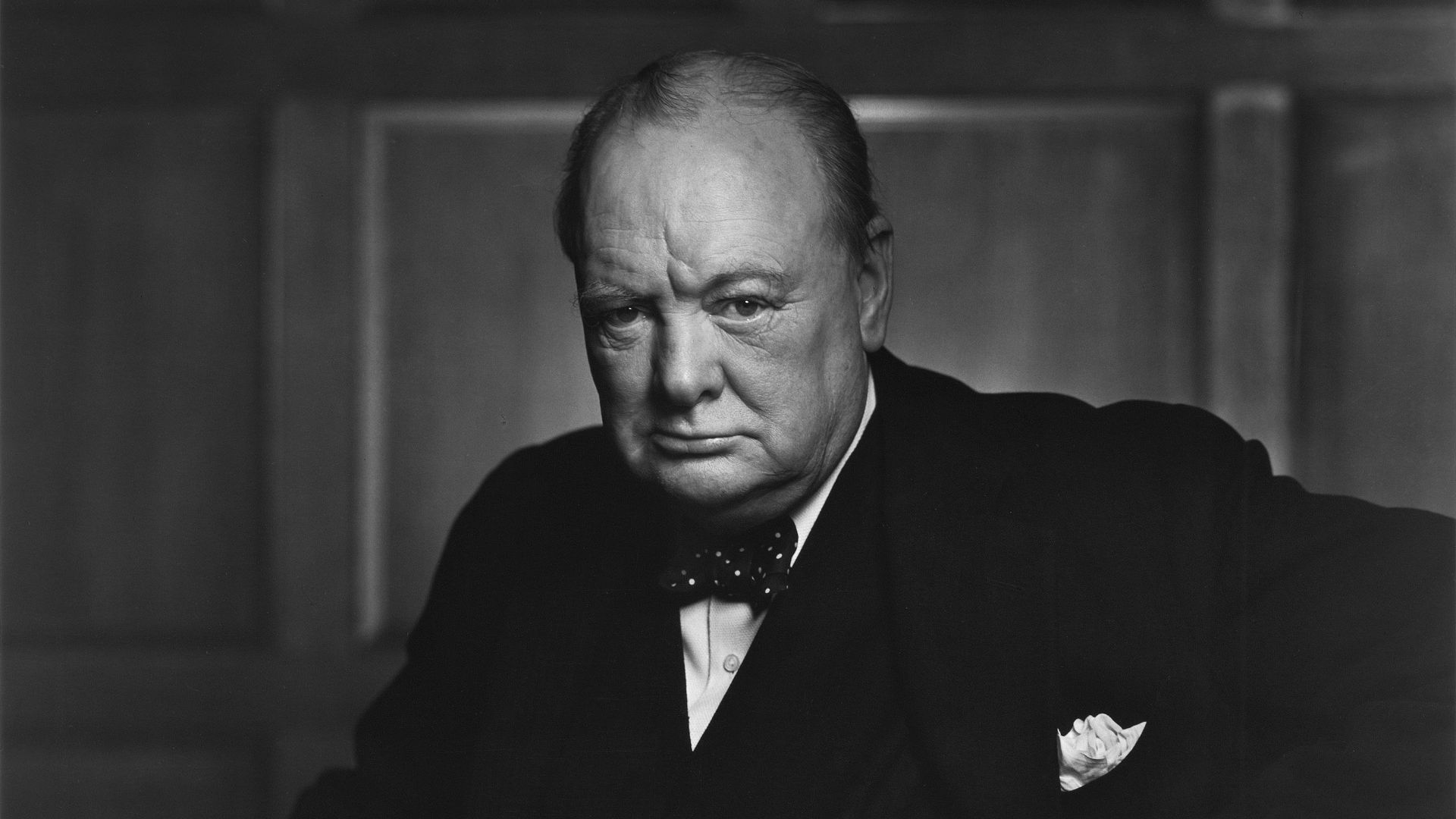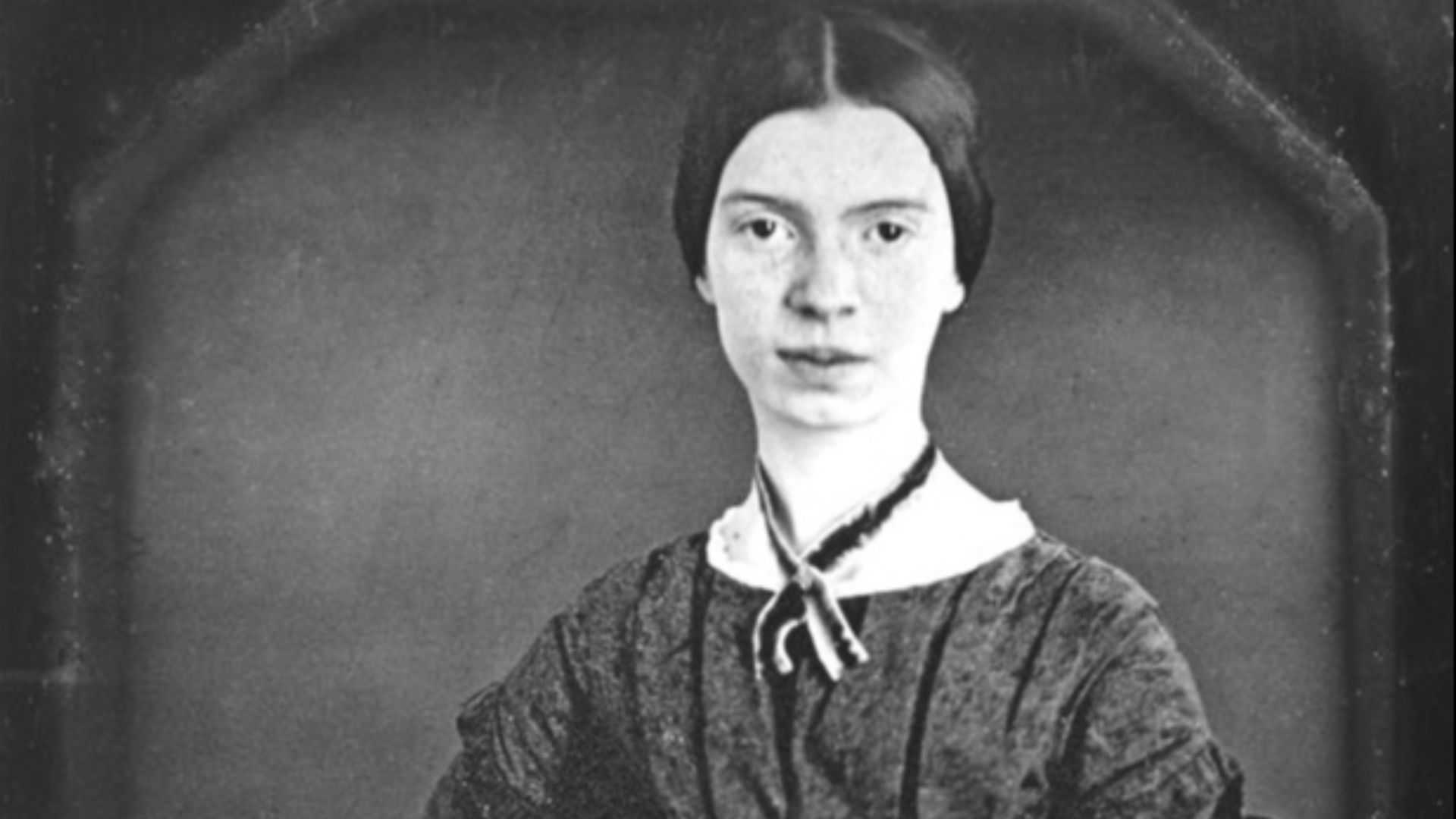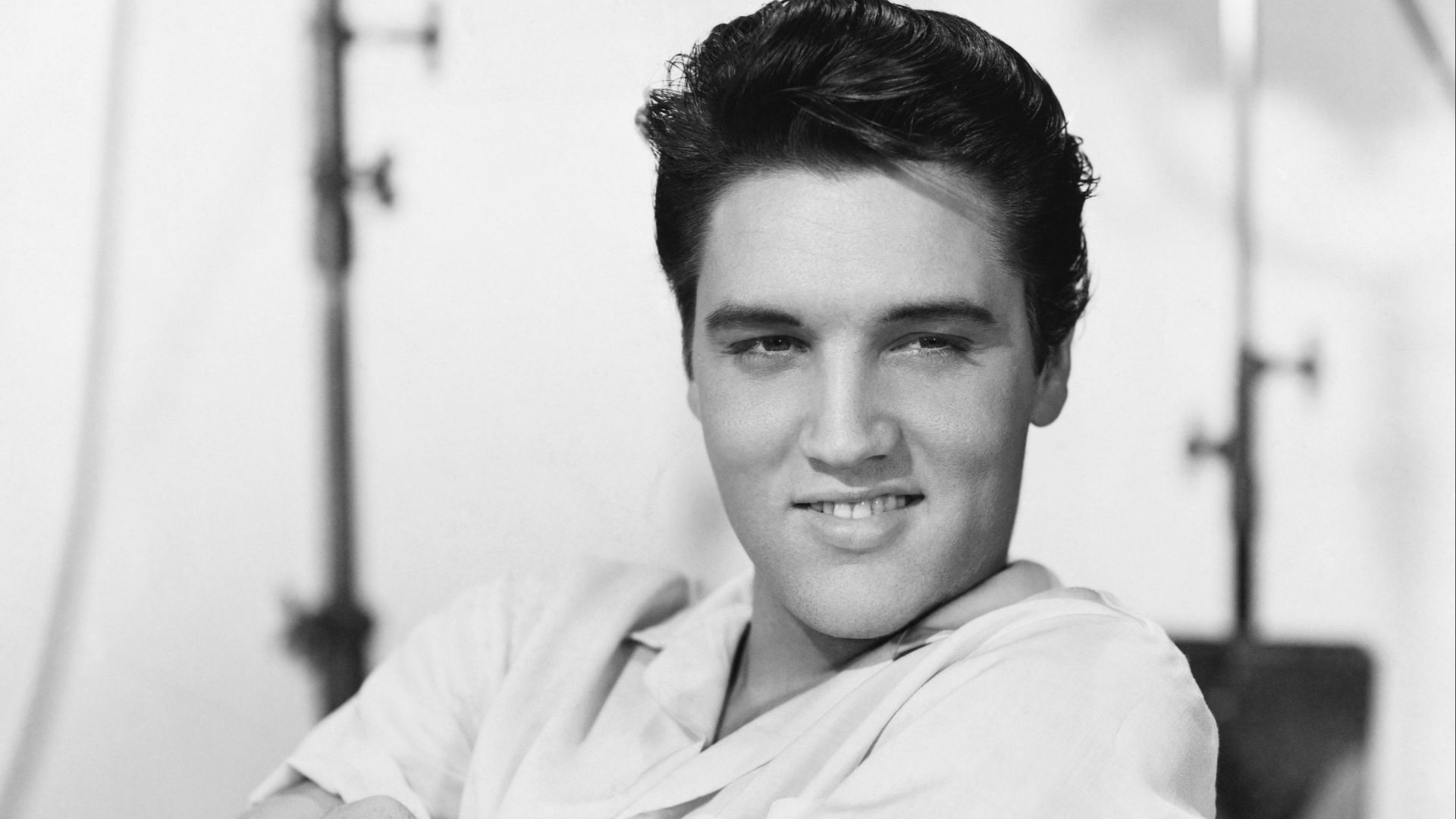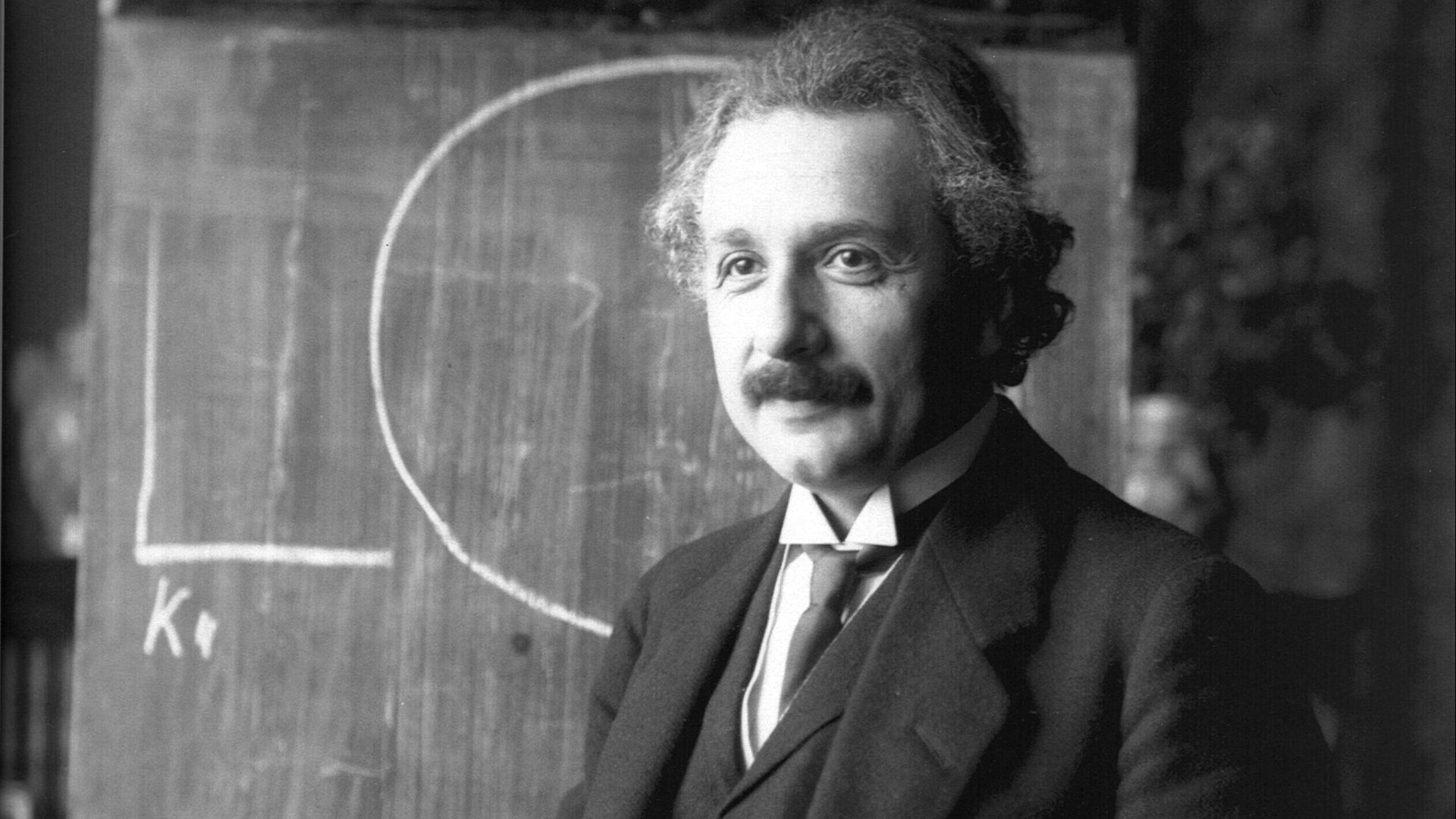"The Sadness Will Last Forever"
Have you ever wondered what last words were uttered by some of the most revered figures in history? Were they sad, optimistic, or humorous? As it turns out, it's quite a mixed bag—and some of these might even resonate or linger with you. From Leonardo da Vinci to Albert Einstein, here are 20 famous parting words from former artists, entertainers, politicians, leaders, and inventors.
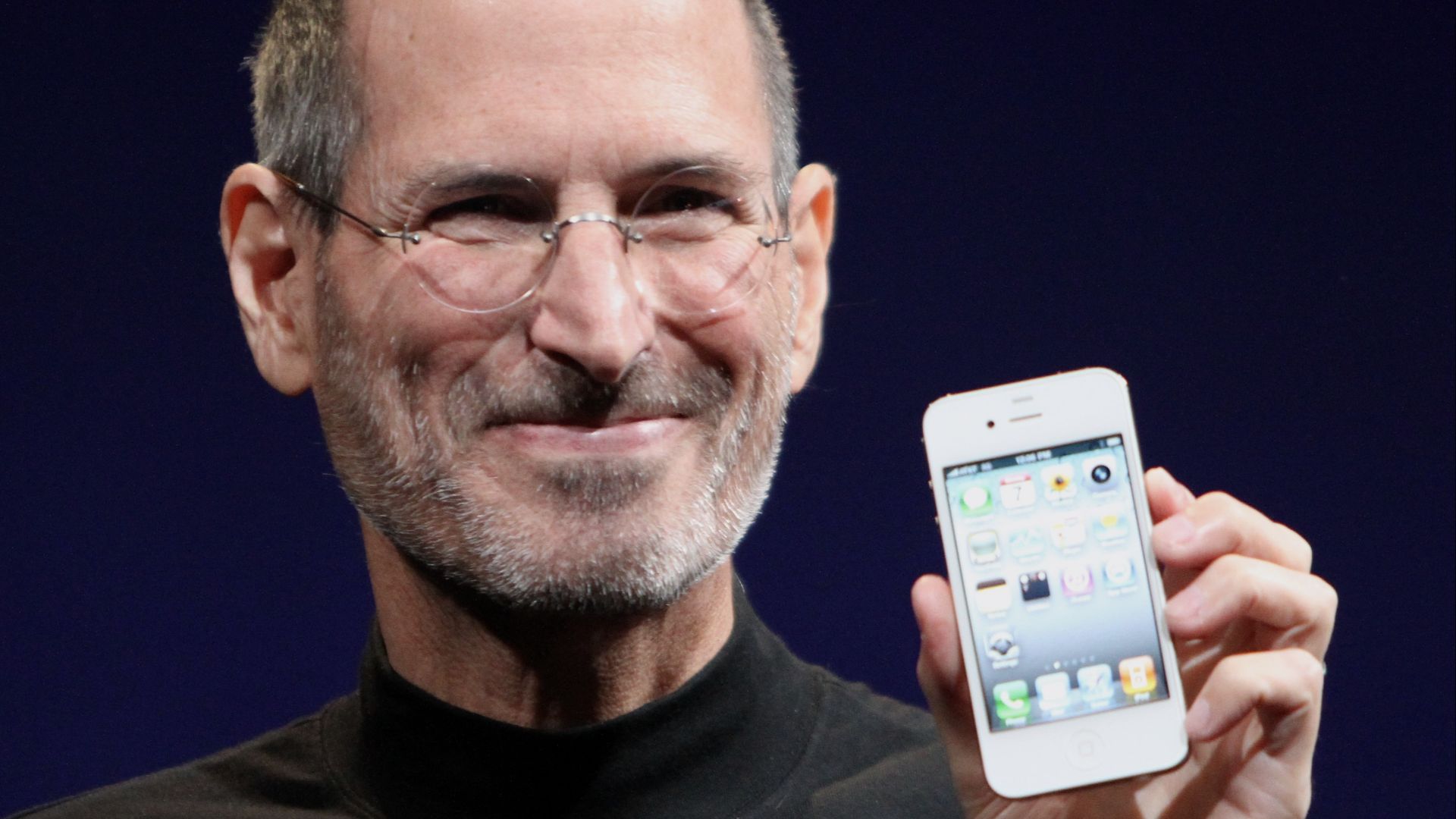 Matthew Yohe (talk) on Wikimedia
Matthew Yohe (talk) on Wikimedia
1. Marie Antoinette
Wife of Louis XVI, Marie Antoinette was the last queen of France before the French Revolution. She faced numerous accusations and criticisms during her reign, and was thought by many to be harboring close relationships with the nation's enemies; she was also referred to as Madame Déficit for her lavish spending habits amid the country's financial crisis. After accidentally stepping on her executioner's foot, her last words before she was beheaded by guillotine on October 16, 1793, were: "Pardon me, sir. I did not do it on purpose."
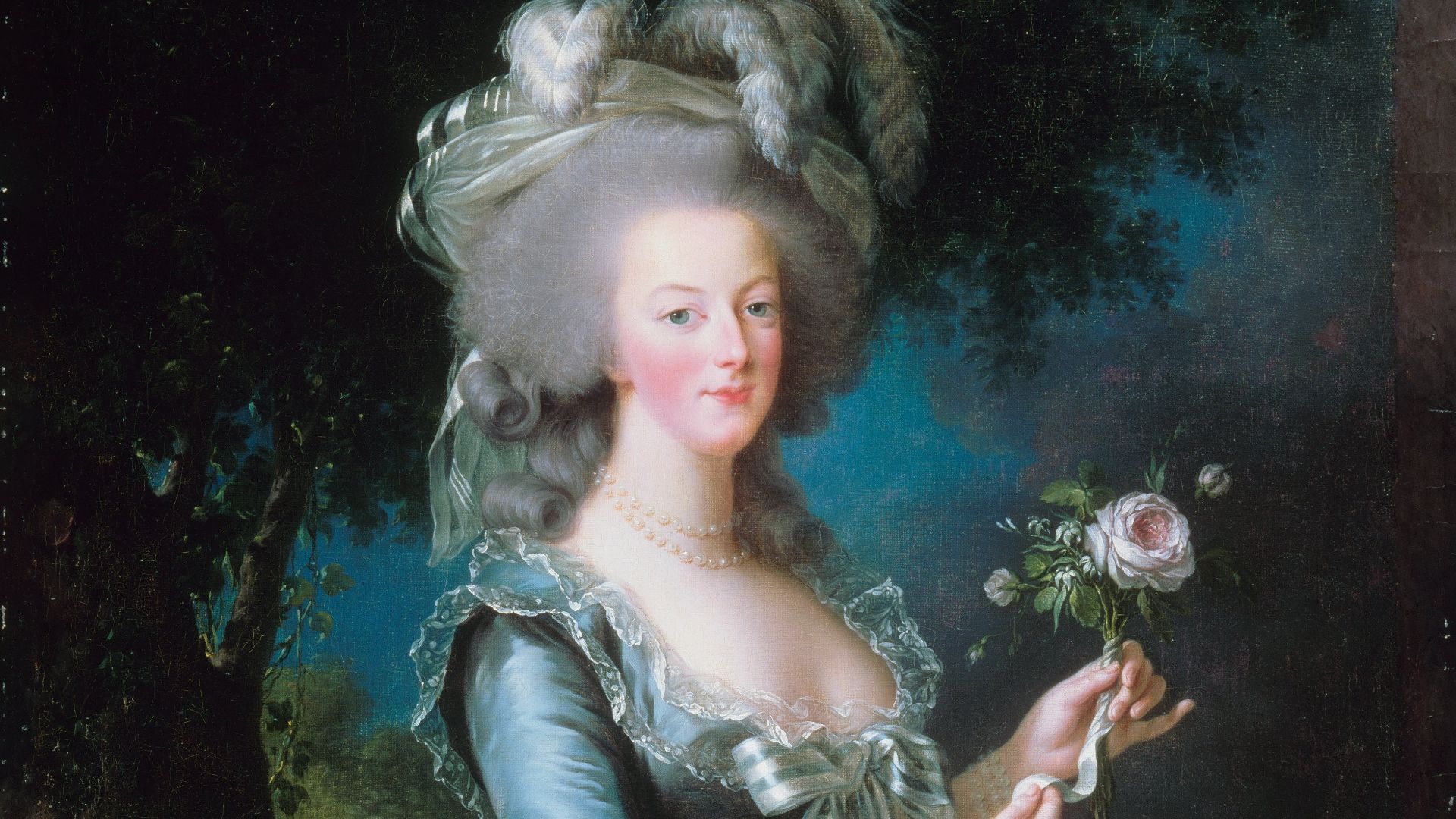 Élisabeth Louise Vigée Le Brun on Wikimedia
Élisabeth Louise Vigée Le Brun on Wikimedia
2. Leonardo da Vinci
As one of—if not the most—influential Renaissance artists, there's likely no one who doesn't know Leonardo da Vinci. He is, after all, the author of some of the world's most iconic paintings, like the Mona Lisa and The Last Supper. And yet, as a notorious perfectionist, he was never completely satisfied with his work—even at his deathbed. His last words, fittingly, were: "I have offended God and mankind because my work did not reach the quality it should have."
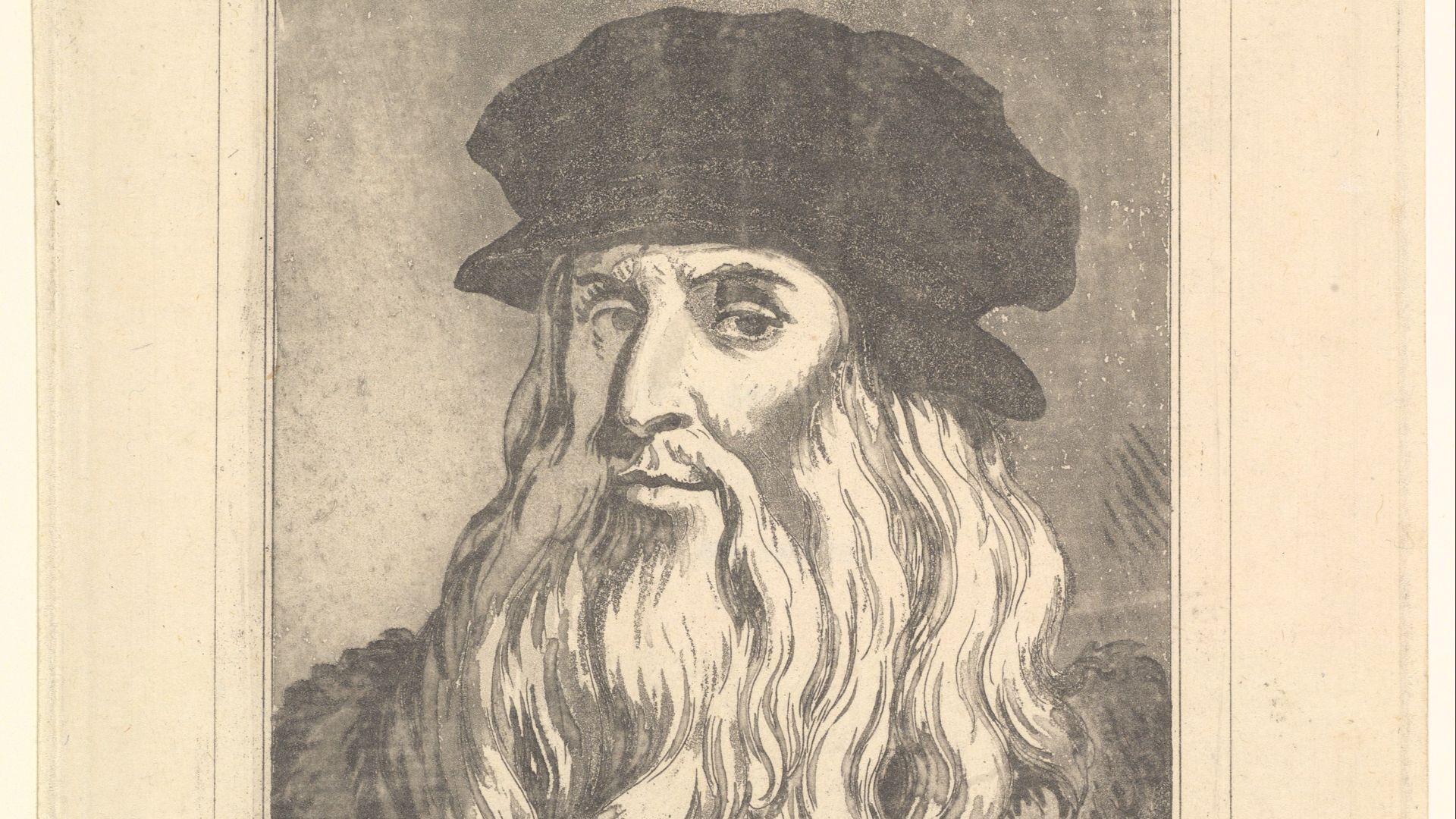 Leonardo da Vinci on Wikimedia
Leonardo da Vinci on Wikimedia
3. Ludwig van Beethoven
A highly revered and respected composer, Ludwig van Beethoven created masterpieces like Für Elise, Symphony No. 9 (also known as The Ninth), and Moonlight Sonata. Many of his works were also created while he'd been gradually losing his hearing, and he was fully deaf by age 40. He died not even two decades later of liver failure, and his last recorded words were: "Pity, pity, too late!"—in response to not being able to drink the wine he'd ordered due to its delayed arrival.
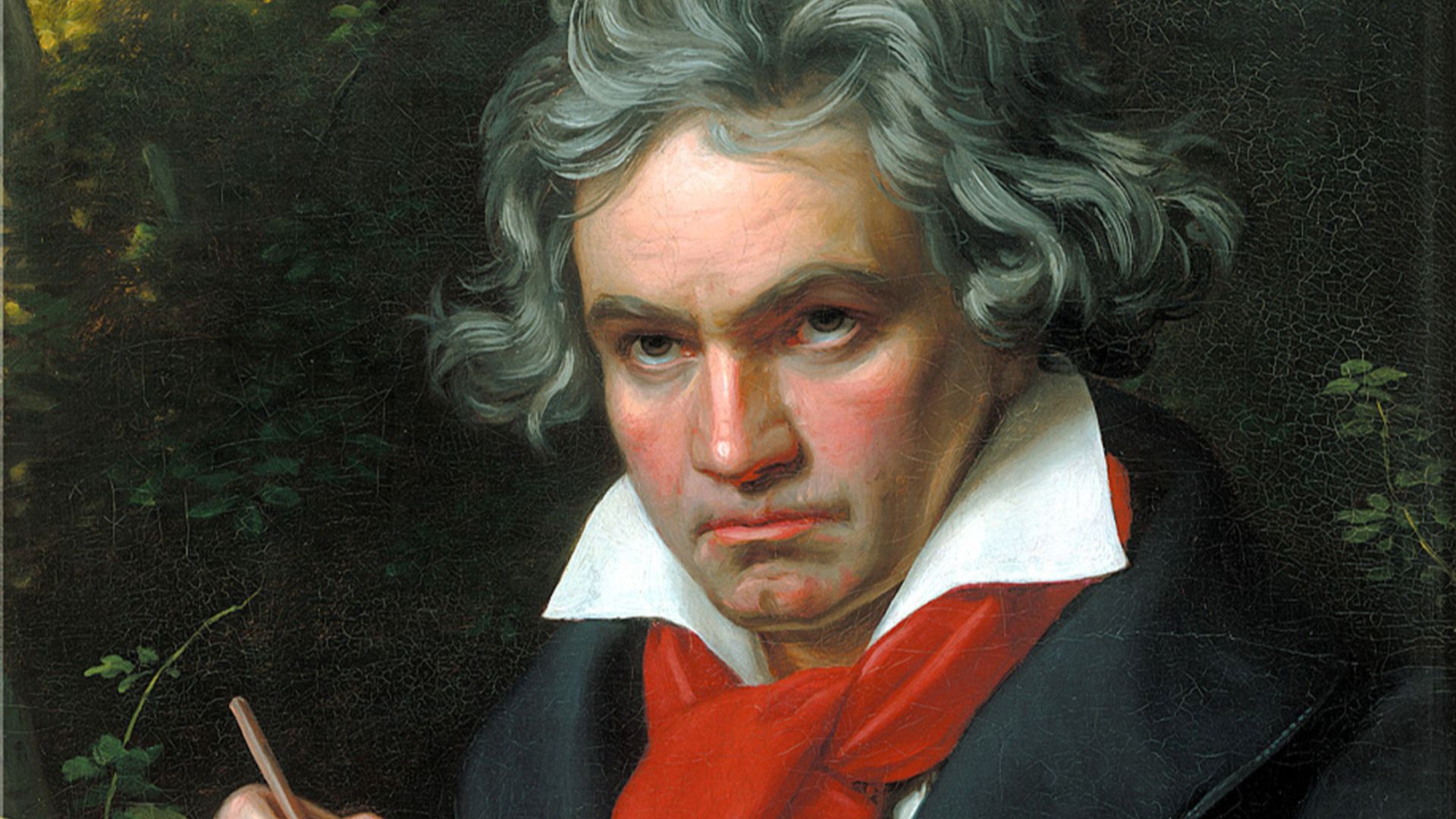 Joseph Karl Stieler on Wikimedia
Joseph Karl Stieler on Wikimedia
4. Vincent van Gogh
Creator of The Starry Night and Sunflowers, Vincent van Gogh is considered to be one of the greatest Post-Impressionist painters. He struggled with his mental health for much of his life (he'd cut off part of his ear amid a breakdown in 1888), and decided to become an artist upon his brother Theo's advice. Though his career was short, lasting just over a decade, he created over 2,000 works. Sadly, his last words to his brother were: "The sadness will last forever."
5. Frida Kahlo
Frida Kahlo was known for her self-portraits and works inspired by Mexican nature and culture. Her paintings often touched on sensitive themes as well, such as identity, death, and the human body. And perhaps that's fitting—she became an artist after being involved in a tragic bus accident, and art was her way of coping as she recovered. When she died at age 47 of a pulmonary embolism (though some suspect suicide), she had said, "I joyfully await the exit, and I hope never to return."
6. Robert F. Kennedy
American politician and lawyer Robert F. Kennedy was assassinated just short of five years after his brother—former US President John F. Kennedy—suffered the same end. He was just 42 years old at the time of his death, celebrating his victory at the Ambassador Hotel in Los Angeles when his assassin opened fire. His last words had been, "Is everybody okay? Everything's going to be okay." Then, as he was being lifted onto a stretcher by a team of paramedics, he'd whispered, "Don't lift me."
7. Steve Jobs
Close family members surrounded Steve Jobs, the founder of Apple, shortly before he passed. He was just 56 years old in 2011, and his pancreas was failing; in fact, he'd been diagnosed with pancreatic cancer eight years earlier, in 2003. According to his sister, Mona Simpson, he'd looked around at his family by his bedside hours before his death, and said, "Oh, wow. Oh, wow. Oh, wow."
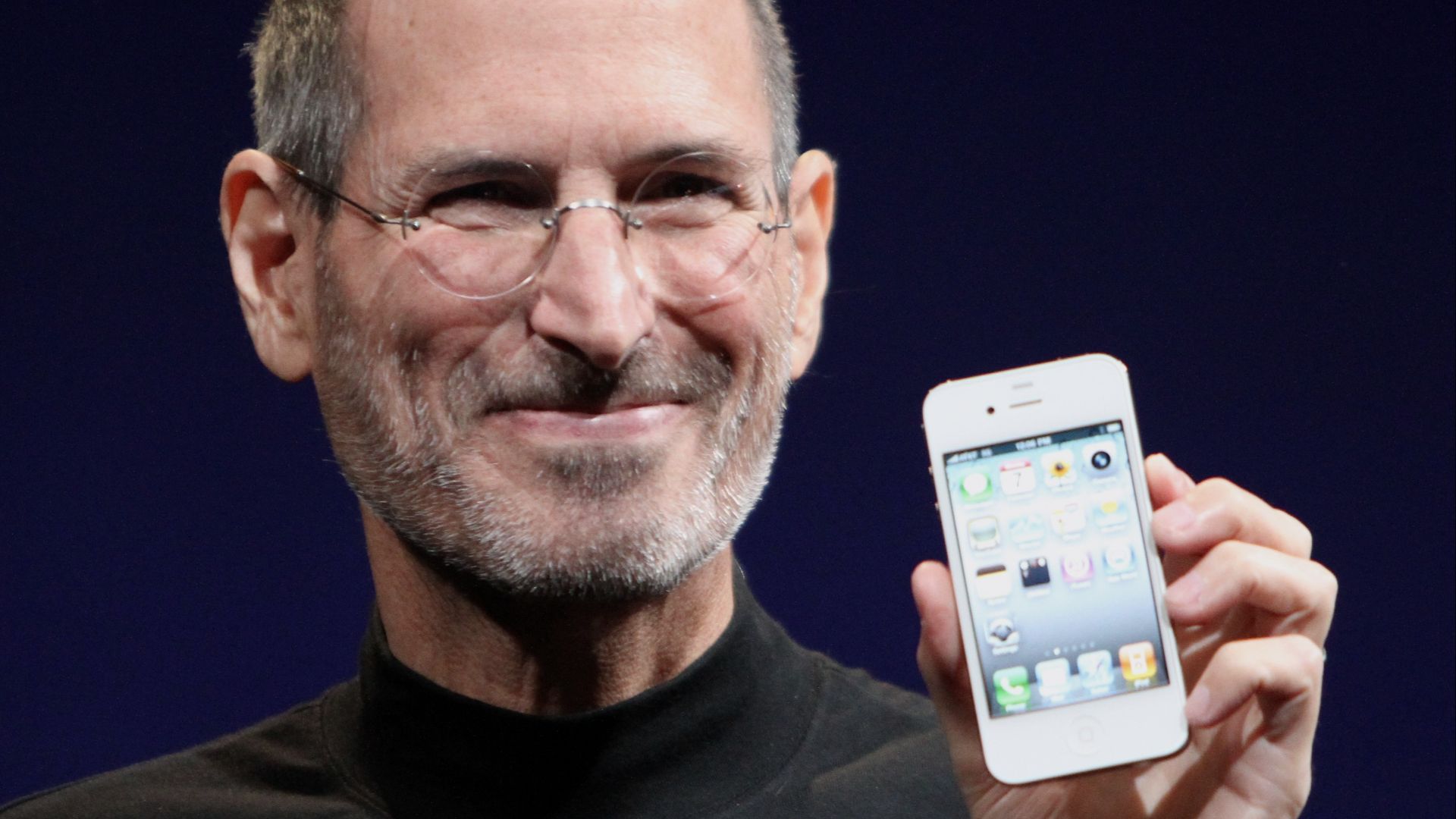 Matthew Yohe (talk) on Wikimedia
Matthew Yohe (talk) on Wikimedia
8. Frank Sinatra
Nicknamed "Chairman of the Board" and "Ol' Blue Eyes" for his founding of Reprise Records and his striking cerulean gaze, singer-actor Frank Sinatra was one of the most popular entertainers of the 20th century. But if you're not immediately familiar with his name, then you might recognize his memorable voice, crooning "Fly Me to the Moon." His last words were nothing short of heartbreaking: as his wife pleaded for him to fight, Sinatra told her, "I'm losing." He died in 1998 of a heart attack.
9. George Orwell
Author of Animal Farm and Nineteen Eighty-Four, among others, George Orwell's dystopian works tackled many controversial topics, such as power and corruption, and were regarded as critiques of totalitarianism. Notably, Orwell had been writing the last few pages of Nineteen Eighty-Four while he'd been battling with tuberculosis, and passed away in 1950 shortly after handing his manuscript in to his publisher. His last written words were: "At 50, everyone has the face he deserves." He was 46 when he died.
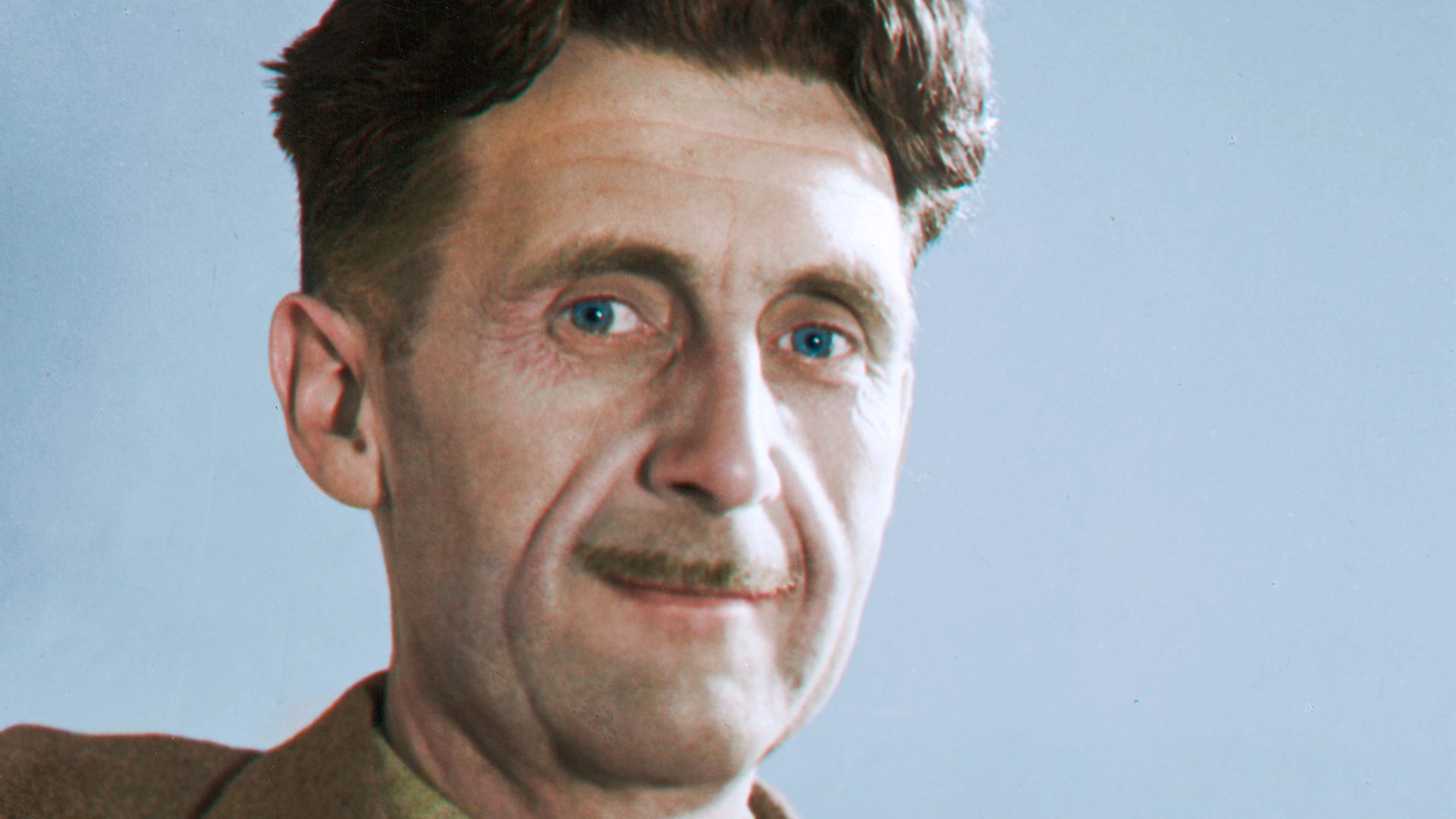 Cassowary Colorizations on Wikimedia
Cassowary Colorizations on Wikimedia
10. Augustus
Augustus, known also as Octavian, was the founder and first emperor of the Roman Empire. He'd seized control and annexed Egypt as well after the fall of the kingdom under Cleopatra and former lieutenant of Julius Caesar, Mark Antony. His last words, said privately to his friends, had been: "Have I played the part well? Then applaud, as I exit." Some sources also believe that his last words, at least publicly, had been: "I found Rome of clay; I leave it to you of marble."
11. Vladimir Nabokov
Russian-American novelist Vladimir Nabokov was the author of many notable works, one of which is Lolita. Though well-recognized, Lolita is highly controversial, telling the tale of a literature professor who kidnaps and violates his 12-year-old stepdaughter. The novel was first published in Paris for fear of it being banned in the US, then was translated by Nabokov himself into his mother tongue to ensure it read exactly the way he'd intended. He died of bronchitis at age 78, his parting words being (which alluded to his special interest in butterflies): "A certain butterfly is already on the wing."
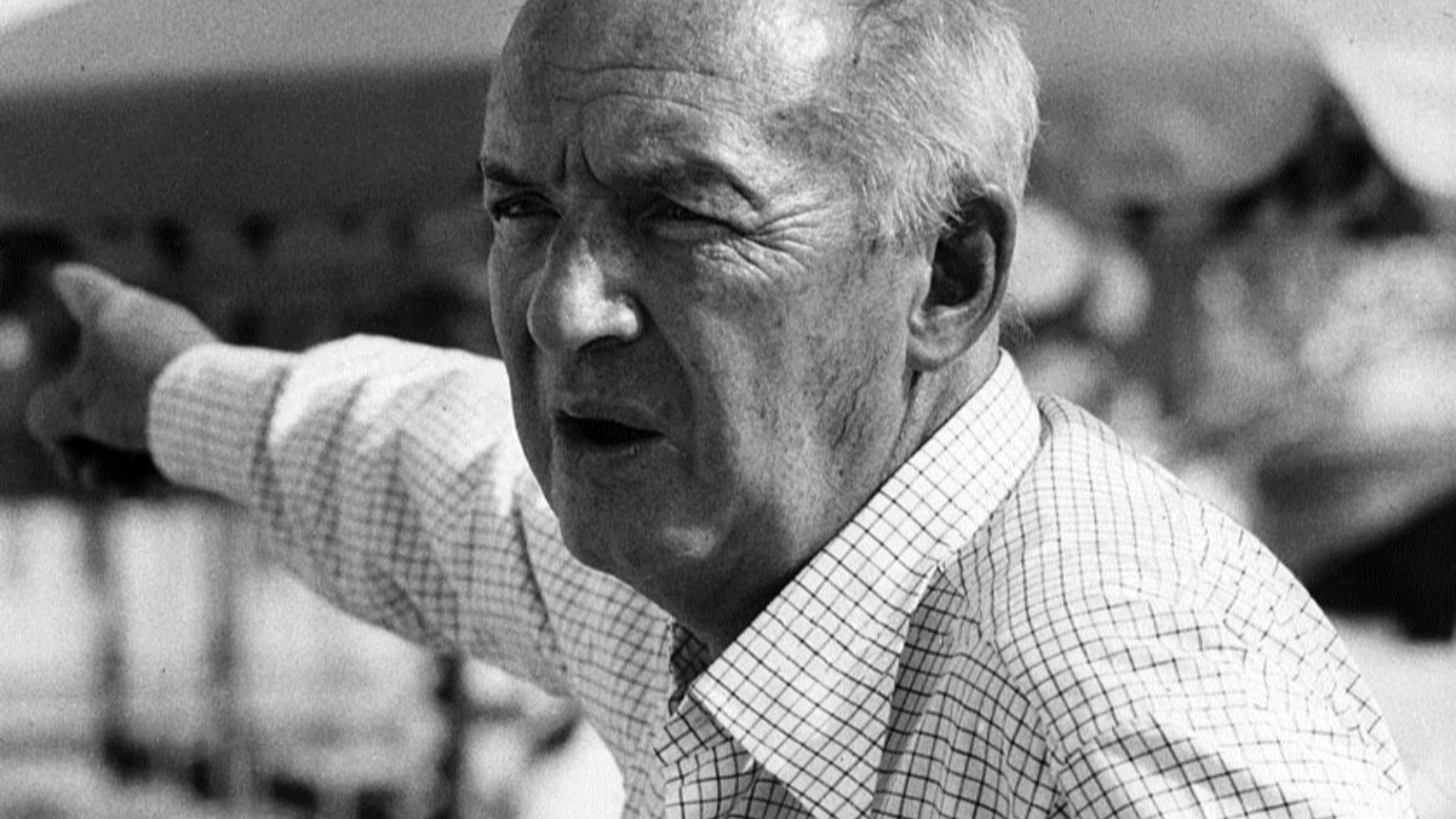 Walter Mori (Mondadori Publishers) on Wikimedia
Walter Mori (Mondadori Publishers) on Wikimedia
12. Harriet Tubman
Harriet Tubman is known for her Underground Railroad, a network of routes she used to guide the enslaved to freedom. She herself had been born into slavery, and among experiencing many atrocities, had suffered head trauma after a two-pound metal weight, intended for another slave, struck her instead. When she finally escaped in 1849, she made it her mission to free others. She died in 1913 of pneumonia, her final words being, "I go away to prepare a place for you, that where I am you also may be."
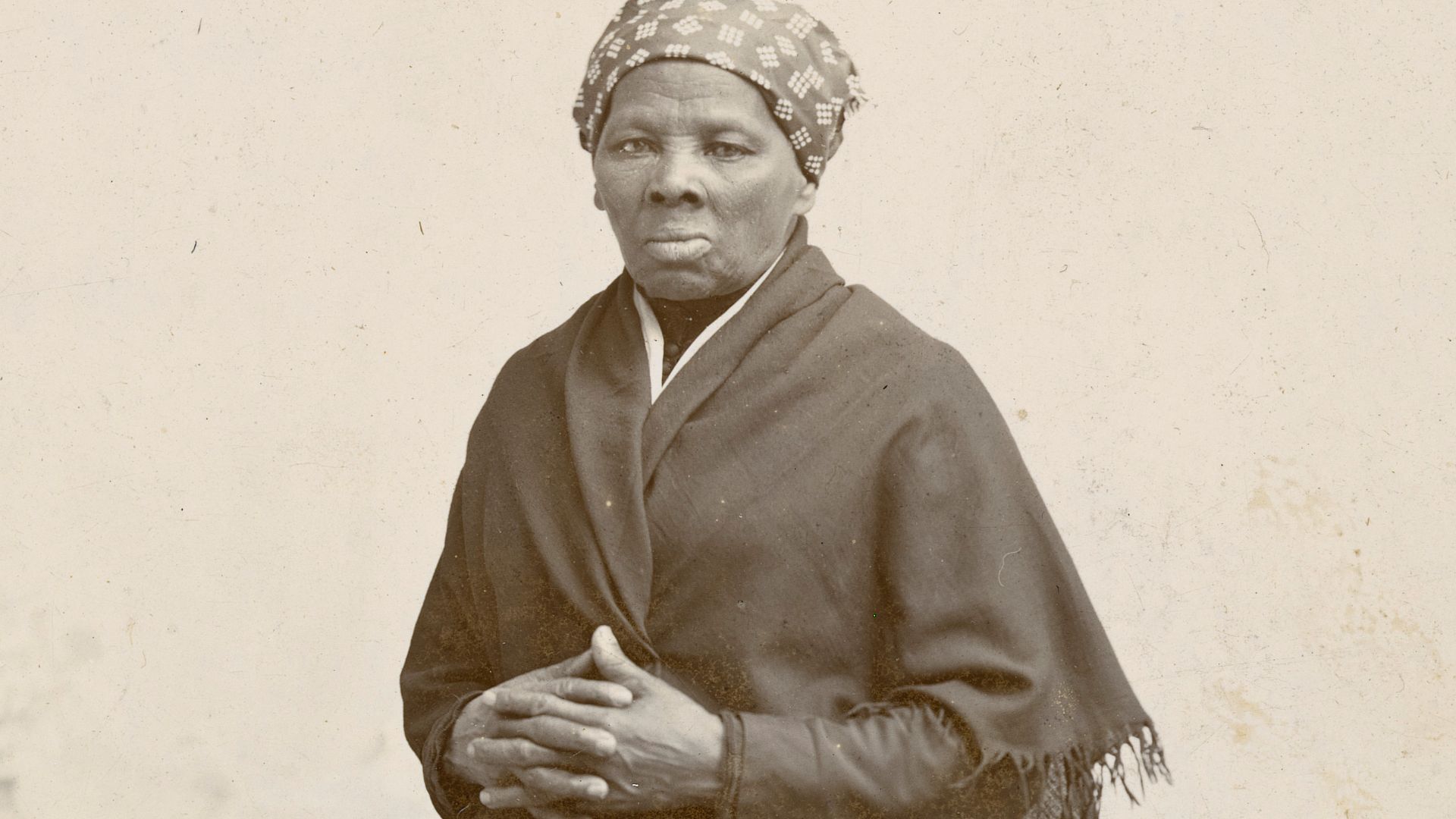 Photographer: Horatio Seymour Squyer, 1848 - 18 Dec 1905 on Wikimedia
Photographer: Horatio Seymour Squyer, 1848 - 18 Dec 1905 on Wikimedia
13. Amelia Earhart
If you've heard of Amelia Earhart, you know that she and her plane went missing over the Pacific Ocean in 1937 and were never seen again. She had been an avid aviator since she was young, and had earned the recognition of being the first female pilot to fly across the Atlantic in 1928. Sadly, during her flight in 1937, her last words heard over the radio were: "We are on the line 157 337. We will repeat this message. We will repeat this on 6210 kilocycles. Wait." The message never came.
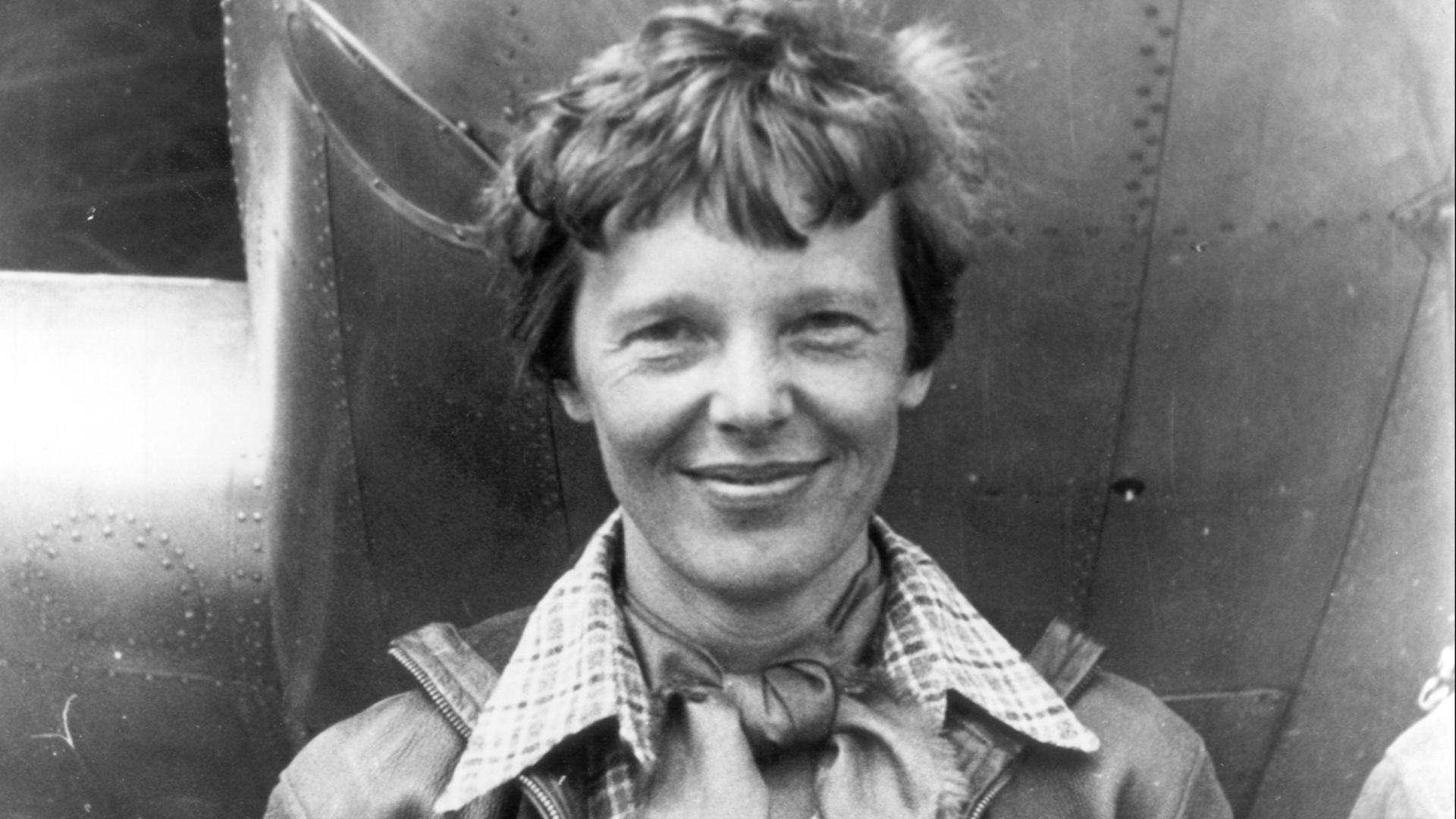 Underwood & Underwood (active 1880 – c. 1950)[1] on Wikimedia
Underwood & Underwood (active 1880 – c. 1950)[1] on Wikimedia
14. Benjamin Franklin
As one of the Founding Fathers of the US and co-author and signer of the Declaration of Independence, it probably doesn't come as a shock that Benjamin Franklin had always been involved with politics; he had, after all, often been "the leader among the boys" even while growing up. That wasn't all, though—he was a scientist as well, and made notable inventions and contributions throughout his studies. On his deathbed, after his daughter asked him to change positions, he'd reportedly said, "A dying man can do nothing easily."
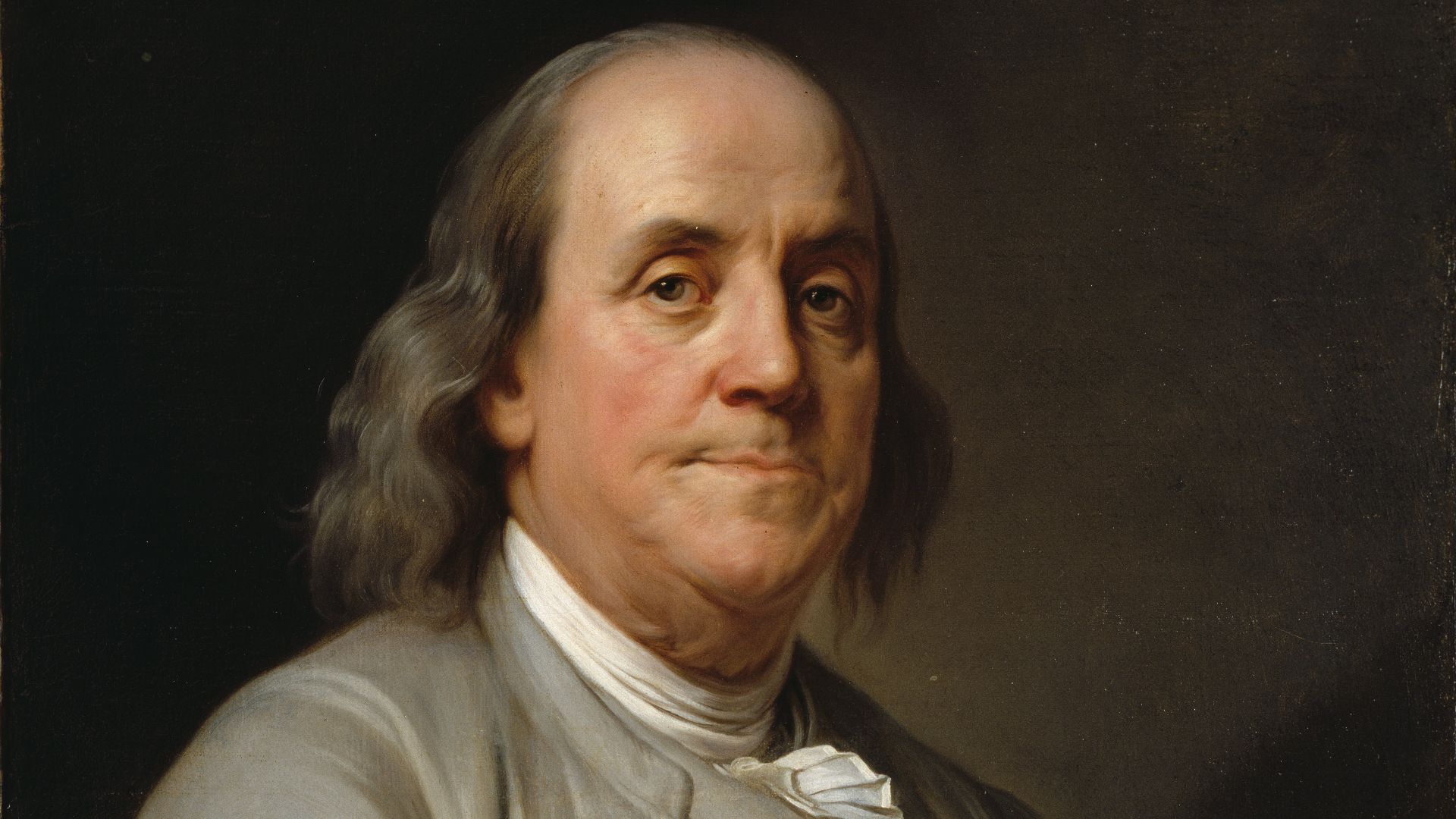 Joseph-Siffred Duplessis on Wikimedia
Joseph-Siffred Duplessis on Wikimedia
15. Ernest Hemingway
Novelist Ernest Hemingway authored works like A Farewell to Arms, The Sun Also Rises, and The Old Man and the Sea—the latter of which earned him the Pulitzer Prize in 1953 and the Nobel Prize for Literature in 1954. Sadly, just a few short years later in 1961, he committed suicide at his home while his wife was still sleeping upstairs. The last words he'd ever said to her had been: "Goodnight, my kitten."
16. John Wayne
American icon John Wayne was well-recognized for the roles he reprised during Hollywood's Golden Age, such as The Searchers, Stagecoach, Red River, and more. So famous was he, in fact, that the American Film Institute named him one of the greatest stars in American cinema in 1999—though he wasn't there to witness it; he died of stomach cancer two decades earlier, in 1979. His last words were to his daughter, who had asked if he still recognized her: "Of course, I know who you are. You’re my girl. I love you."
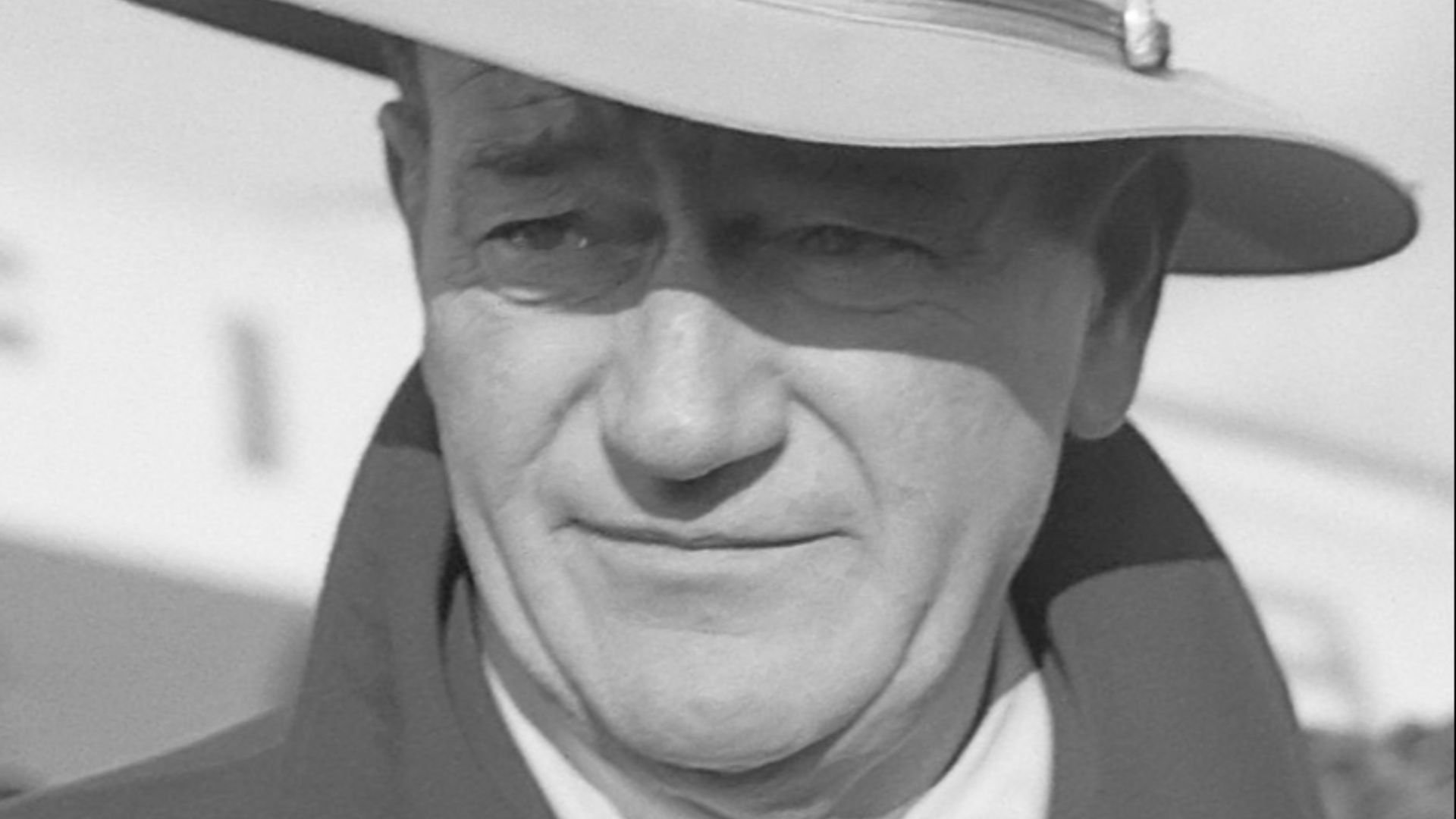 Hugo van Gelderen / Anefo on Wikimedia
Hugo van Gelderen / Anefo on Wikimedia
17. Winston Churchill
Former Prime Minister of the United Kingdom, Winston Churchill is considered to be one of the most influential and important figures of the 20th century. In fact, many historians regard him to be one of Britain's greatest prime ministers. A series of strokes took his life when he was 90, and his last words were to his son-in-law, saying, "I'm bored with it all."
18. Emily Dickinson
Despite Emily Dickinson being regarded as one of America's greatest poets, her works were few and far between, and most weren't publicized until after her death in 1886; she'd only published a letter and 10 of roughly 1,8000 poems during her lifetime. She was also highly reclusive and often talked to people through her closed bedroom door. Her death was caused by Bright's disease (an archaic term referring to a group of kidney complications), and her last words had been in a message to her niece: "I must go in; the fog is rising."
19. Elvis Presley
The King of Rock and Roll wasn't born with a silver spoon in his mouth; in fact, he grew up in poverty and was ostracized by his peers throughout his childhood. His loneliness led him to music, and the rest is history. Sadly, years of substance abuse and a history of disordered eating led to his death from a heart attack—the organ had been double its size by the time it gave out. His last words had been to his girlfriend, telling her, "I'm going to the bathroom to read."
20. Albert Einstein
Albert Einstein is regarded as one of the most significant physicists of the 20th century, having developed the general and special theories of relativity and the mass-energy equivalence formula (E = mc2), among other important contributions and publications. His ingenuity prompted scientists to dissect his brain after a ruptured aortic vessel took his life. Tragically (and maybe even humorously, in a morbid sense), his last words had been spoken in his native tongue to a nurse who did not understand German. To this day, people can only speculate what he'd uttered in those last few minutes.
KEEP ON READING

20 Greek Gods We Don't Often Talk About
Step Aside, Zeus. Greek mythology isn’t only about Zeus and…
By Elizabeth Graham Jan 16, 2026
10 Historic Courtship Practices That Should Be Brought Back &…
Old-School Dating Was a Mix of Charming & Unhinged. Historic…
By Emilie Richardson-Dupuis Jan 20, 2026
Legendary Tales: 20 Most Fascinating Mythical Creatures from Folklore
Mythological Beasts. Stories about mythical creatures endure for a simple…
By Christy Chan Jan 16, 2026
Pooches Of The Past: Extinct Dog Breeds
Unknown authorUnknown author on WikimediaDogs have been showing up in…
By Elizabeth Graham Jan 27, 2026
The 20 Craziest Silent Films Ever Made
When Silence Let the Madness Speak. Silent cinema didn’t just…
By Chase Wexler Jan 5, 2026
The three most expensive historical artifacts ever sold at auction
Attributed to Leonardo da Vinci on WikimediaAuctions are where history…
By Emilie Richardson-Dupuis Jan 9, 2026

